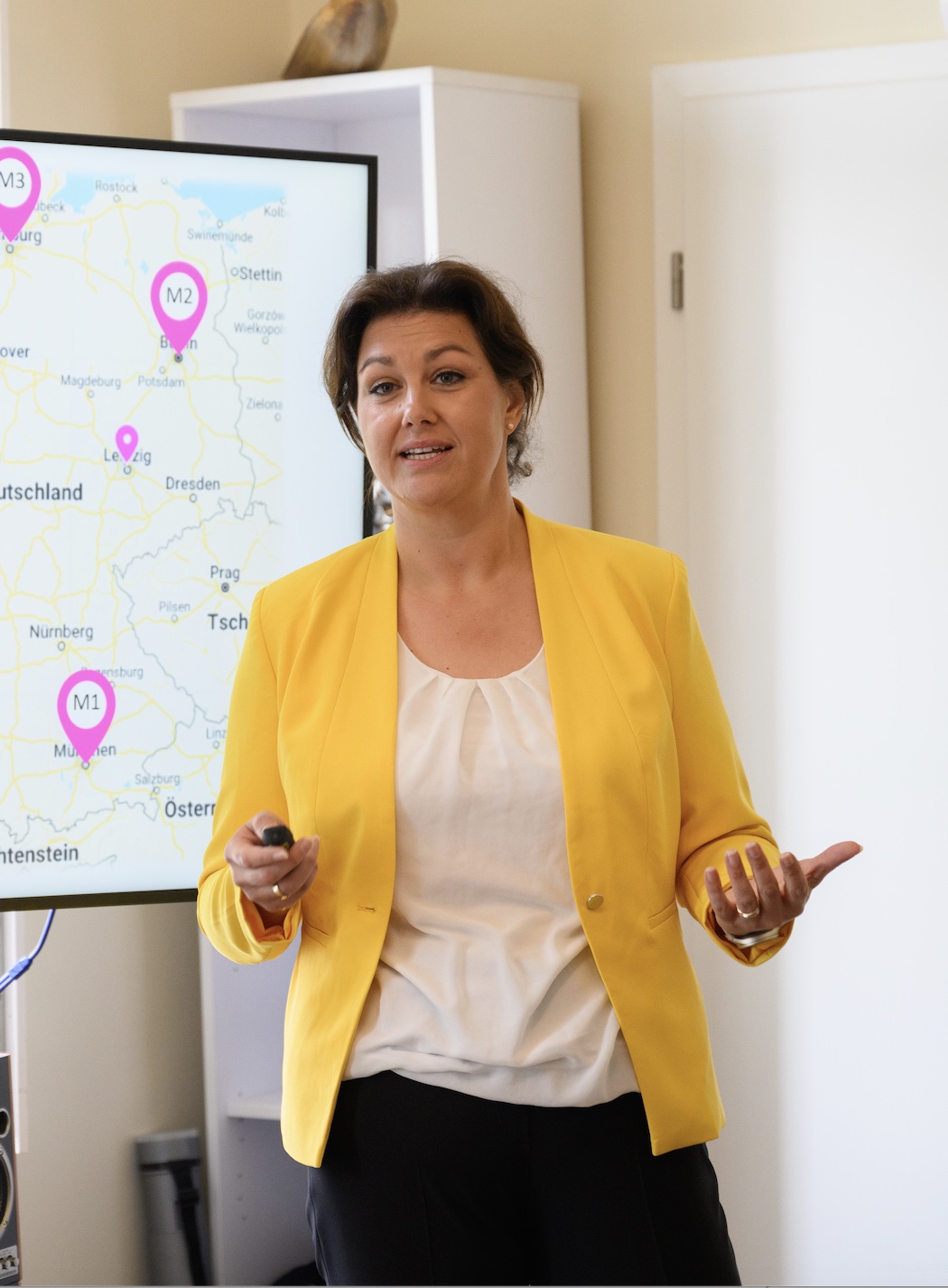Psychological Safety In The Team

Psychological safety in a team is the often underestimated success factor of modern leadership. An atmosphere of trust and security – sounds obvious, doesn’t it? But for many teams, this is unfortunately a distant reality. Instead of openness and honesty, fear, insecurity and the feeling of constantly having to prove oneself dominate. Managers who fail to take active countermeasures in this environment are not only jeopardizing the well-being of their employees, they are also jeopardizing the success of the company.
Psychological safety is more than just a buzzword: it is the foundation for creative collaboration, mutual trust and long-term success. And as a rule, it is not tangible or is rarely verbalized by employees. So what does it mean in concrete terms? And why does the responsibility for this security lie with managers Alexandra Hagemann, expert in adult education, specializing in neuropsychology and media education, gives an explanation.
What is psychological safety?
Psychological safety describes a working environment in which people dare to express their opinions and ideas freely – without fear of negative consequences. It is more of a feeling of security, of trust, which in turn makes the individual capable of acting and encourages people to take responsibility. It also includes the issue of error culture.
Because those who act and take responsibility think for themselves, ask critical questions or come up with ideas for new approaches. This clearly works better if you have the confidence that you will not be devalued or sanctioned. And yes, even if mistakes don’t happen, they will happen. Those who are already afraid to act are unlikely to take responsibility.
A proactive environment requires more than just good intentions. It requires active leadership, clear communication and a willingness to build trust. After all, psychological safety does not develop by itself – it must be consciously promoted.
Why do many teams lack psychological safety?
In stressful, performance-oriented environments, psychological safety is often neglected. When the focus is solely on results, human needs fall by the wayside. Managers who focus solely on numbers and KPIs often overlook the care factor of leadership. They are not aware of how important feedback and addressing fears and insecurities in the team are, for example.
Added to this are entrenched hierarchies that make it difficult for employees to speak openly with managers. Anyone who fears being judged for a mistake will prefer to remain silent – and thus withhold important insights or ideas.
Why is psychological safety so important?
Research shows that teams in which psychological safety prevails perform significantly better. They are more creative, innovative and resilient. Employees in a safe environment are more motivated and less afraid to contribute new ideas or take risks. They take on responsibility, identify with both products and the company and get involved.
Psychological safety is a decisive success factor, especially in a rapidly changing world. It enables teams to react flexibly and openly to new challenges. Especially in uncertain times, it gives people stability – and thus strengthens the entire company.
The responsibility of managers
Psychological safety starts with leadership. Managers have the task of creating a working environment in which everyone feels safe and valued. But how can this be achieved in practice?
Listen and take seriously
Managers need to be present and actively listen and take care of their employees to a certain extent in accordance with the care factor. Regular discussions in which feedback about their actions, but also ideas, can be openly addressed are an important step. It is crucial that all opinions are treated equally – regardless of hierarchy or role.
See mistakes as learning opportunities
Mistakes are part of everyday working life – and are often the best opportunities to learn. Instead of apportioning blame, managers should look at the causes and develop solutions together. Phrases such as “What can we take away from this?” or “How can we solve this in the future?” can work wonders.
Build up trust
Trust is the basis of every successful collaboration. Managers who act authentically and reliably create a basis on which teams can feel secure. This also includes admitting your own weaknesses – this shows humanity and breaks down barriers.
Promoting diversity and openness
Different perspectives enrich every team. Psychological safety means that all voices are heard, regardless of gender, age, origin or position. Managers should actively ensure that diversity is not only accepted, but also valued.
How psychological safety contributes to corporate success
Companies that prioritize psychological safety benefit in several ways. Satisfied, self-confident employees are more productive, sick less often and stay with the company longer. This not only strengthens team dynamics, but also reduces fluctuation and recruiting costs. At the same time, innovative strength is increased. If nobody has to fear criticism or rejection, new ideas are shared more easily. And it is precisely these ideas that make companies future-proof.
Conclusion: Safety as a management task
Psychological safety is not a luxury, but a necessity. It creates the basis for teams that not only function, but really work together and grow. Managers who have the courage to rely on trust and openness not only strengthen their employees, but also the entire company. Because at the end of the day, it is not fear that moves us forward – it is the freedom to be courageous.
psychological safety, working climate

C&C Autorin aus Odelzhausen
Sie ist Expertin für Erwachsenenbildung, spezialisiert auf Neuropsychologie und Medienpädagogik. Als Diplom-Pädagogin, Trainerin und Coach verbindet sie wissenschaftliche Kompetenz mit Empathie. Ihre Fähigkeit, Brücken zwischen Menschen zu bauen, zeichnet sie als Expertin aus, die nicht nur mitfühlt, sondern echte Unterstützung bietet. 2023 gewann Hagemann mit ihren Trainings zweimal den Europäischen Trainingspreis. Sie versteht es, komplexe Inhalte didaktisch fundiert und praxisnah zu vermitteln. Neben zahlreichen Fachartikel zu positiver Führung und stärkeorientiertem Arbeiten erschien 2024 ihr Buch “30 Minuten Empowerment” im Gabal Verlag. Sie ist Moderatorin diverser Personal- und Fachmessen.



